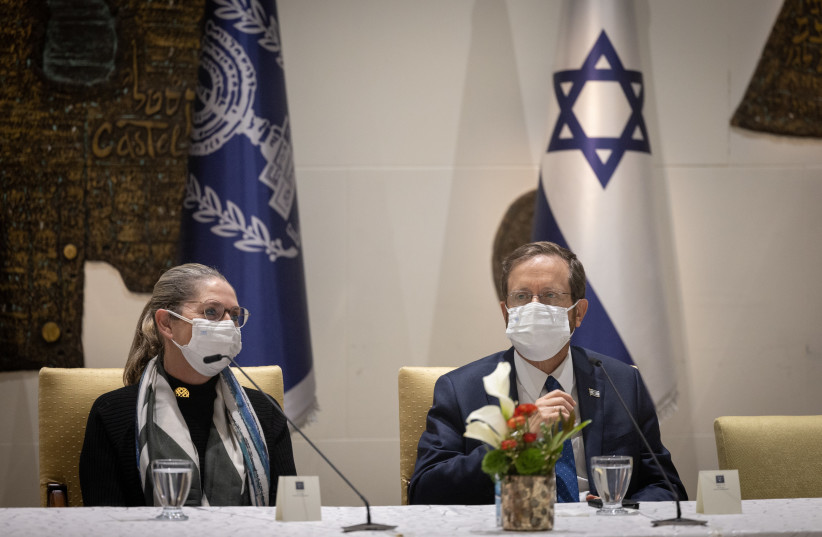For decades, the topic of intermarriage has been a source of a deep divide between Israeli Jews and the Diaspora Jewish community. There have been difficult debates over who is Jewish and what is a proper conversion. Yet, the most painful of all was the writing off of many diaspora communities.
“Who cares about them! They are assimilated and will disappear within a generation or two.” Intermarriage was used too often to write off individuals and communities. This year, that all changed and Israelis learned the hard way people don’t just disappear after marrying out.
Last month Israel erupted in controversy when a Bible study convention, “Tanach 929,” invited an Israel-Arab media personality as a speaker. Several rabbis spoke out against this, citing her marriage to Fauda actor Tsahi Halevi, accusing her of being “a symbol of assimilation.”
While some defended the decision, others pointed out that Dr. Gadi Taub and Gali Bat Horin, both regular speakers – often alongside senior rabbis in religious Zionist venues – are married to Christians with no one protesting at all.
These are not the only cases or exceptions. Israel’s multi-cultural and multi-ethnic reality comes with both high profile and ordinary folks who feel deeply Jewish, yet are married to people who are not Jewish. Their marriage is not reflective of how committed they are to Judaism, nor does their choice of a spouse reflect on their identity as Jews.

Yet, what is most fascinating is how personal knowledge and proximity to a person changes the perspective of even the most zealous. The more the person is from an in-circle, the more even the most zealous party will diminish the role of the intermarriage.
As an Orthodox rabbi, I would never suggest any changes to Orthodox law, standards of conversion or the vital importance of making sure Jews feel committed enough to build their future home with like-minded Jews. Yet, it is my greatest hope that the recent conversation and controversy inside Israel inspires recognition that you can’t just write someone off because they married out. They continue to be Jewish. In the case of Jewish women, their children are fully Jewish even after they married a non-Jew.
Children of interfaith families with only a Jewish father may not be halachically Jewish, but they share a lot of history and community with me. Yes, the fact they identify as Jews cannot force a change in Orthodox law, but we can treat them as brothers of a shared fate.
They are most often not asking for an Israeli passport or to join a hassidic congregation; however, they are not asking to be pushed away either. Recent events have shown Israelis it is only easy to reject people you have never met. I do hope intermarriage becoming personal in Israel will inspire a healthier and more honest conversation between Israel and the Diaspora.
The writer is an eleventh-generation rabbi. He is a writer, speaker and teacher. He has written Sacred Days on the Jewish holidays, Poupko on the Parsha, and hundreds of articles and essays published in seven languages.
